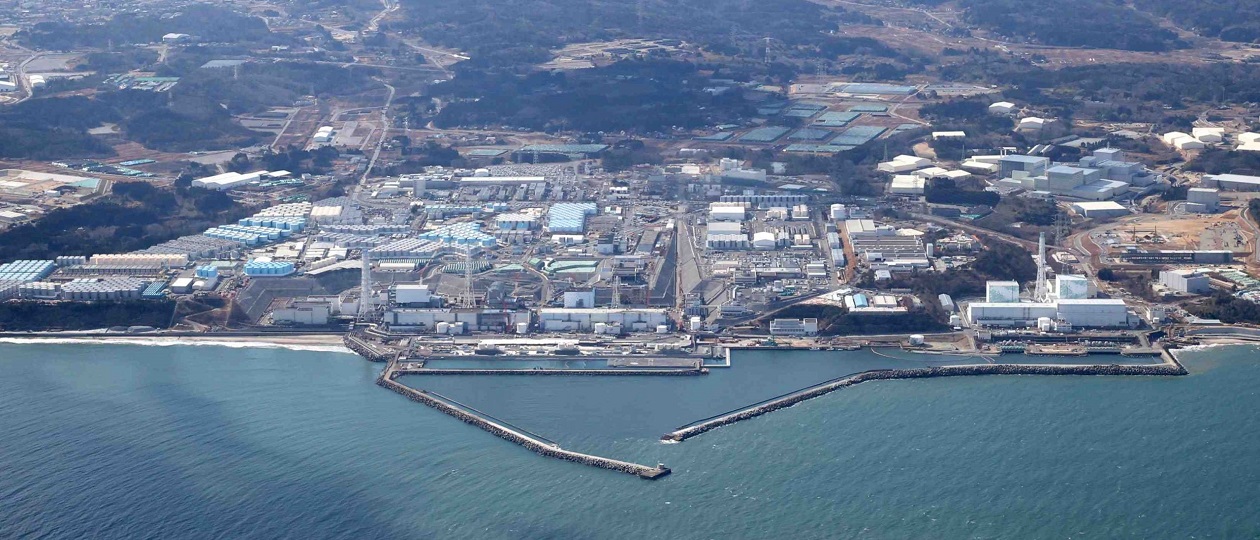
Japan`s government is considering restarting reactors and building next-generation new ones.
The Japanese prime minister, Fumio Kishida (岸田 文雄), announced he had administered a special government panel to research how “next-generation nuclear reactors equipped with new safety mechanisms” could help Japan in “green transformation” and achieving its goal of carbon neutrality by 2050.
A move to look into raising new nuclear plants, which experts say could be safer than those using existing technologies, marks a U-turn in government policy since the Fukushima disaster, rocked the country`s dependance on atomic energy.
Kishida had already stated resuming of some nuclear plants after Tokyo suffered energy crunch during a recent heatwave. In the context of accelerating energy development program, it will goal to put into operation 17 out of a total 33 operable reactors by next summer and to extend the lifespan of current-working plants.
No nuclear stations have been erected in Japan since an earthquake in 2011 and the ensuing triple meltdown of reactors at the Fukushima Daiichi nuclear power plant.
Prime minister`s move to restore Japan`s status as nuclear-powered nation is obviously aspiring to keep energy prices down and also to support national nuclear technology sector.
“As a result of Russia’s invasion of Ukraine, the global energy situation has drastically changed,” he said at an energy policy meeting last week.
“Russia’s invasion of Ukraine has vastly transformed the world’s energy landscape… Japan needs to bear in mind potential crisis scenarios.
“Whatever happens globally, we need to prepare every possible measure in advance to minimize the impact on people’s lives”, he said, adding that the government would submit concrete plans for the national nuclear sector by the end of the year.
Alongside, the economy and industry minister, Yasutoshi Nishimura (西村 康稔), said it was “tremendously important to secure all options to redesign a stable energy supply for our country. From that perspective, we will also consider all options regarding nuclear power.”
The large increase in energy prices particularly propelled by war in the Ukraine has forced many countries revise their energy policy.
Japan`s energy policy has been on the whole collapsed since the 2011 Fukushima disaster brining about the shutdown of almost all reactors all over the country and forcing to burn additional non-renewables despite its pledges to achieve zero carbon emissions by 2050.
That`s because Japan imports most of its energy, it has also been struck by the rising commodity prices. The country hinges on Russia for up to 10 per cent of its LNG.
Before Fukushima disaster, Japan got about a third of its energy from nuclear reactors. While Japan pledged to achieve a goal for nuclear power generation to account for 20-22% of its electricity supply in 2030, in 2020 the figure was less than 5%.
These days, only six are operational with restarts hampered by safety incidents and regular inspections, along with gaping public skepticism of power companies including TEPCO (Tokyo Electric Power, 東京電力ホールディングス株式会社). Dozens of others are still going through a relicensing process under stricter safety standards following the 2011 disaster.
The seven additional reactors could play a bigger role for nuclear in Japan’s energy mix being restarted after next summer, including two at Kashiwazaki-Kariwa (柏崎刈羽原子力発電所), the biggest nuclear plant in the world. Its restarting would be extraordinarily contentious, since it is run by TEPCO, which also operates infamous Fukushima Daiichi.
Japanese companies intensified lobbying the restarting nuclear plants this year, people deeply involved in the matter said The Financial Times. Tokyo blackout threat and war in the Ukraine widened the number of firms involved. As a person close to policymakers said The Financial Times, “There was a feeling that enough time had passed and that the public would be more worried about energy supply than the nuclear risk.”
Kishida still admitted that the government would have to win support from the public. Officials believe voters have already become more favorable towards nuclear power due to increased electricity and fuel bills and danger of blackout in Tokyo this summer.
He noted that local resistance would still be strong. Local elections around the country in the next few years would show public opinion on nuclear power, he said.
It`s the perfect time for Kishida to throw his political weight behind the nuclear power generation, analysts think. He is not going to face any major election for the next three years, while Japan is already paying more for energy than most of others of the G7 partners, so industrial competitiveness is also at stake.
At the same time, Kishida could also be sighting to expand national`s competitiveness on the global nuclear technologies market, especially in Asia, where there is a growing need for new energy development projects, experts said.
The 2011 disaster released a vast amount of radiation into the atmosphere and forced tens of thousands of people to flee their homes. Some areas near the plant remain prohibited, while others have only recently reopened to residents.





